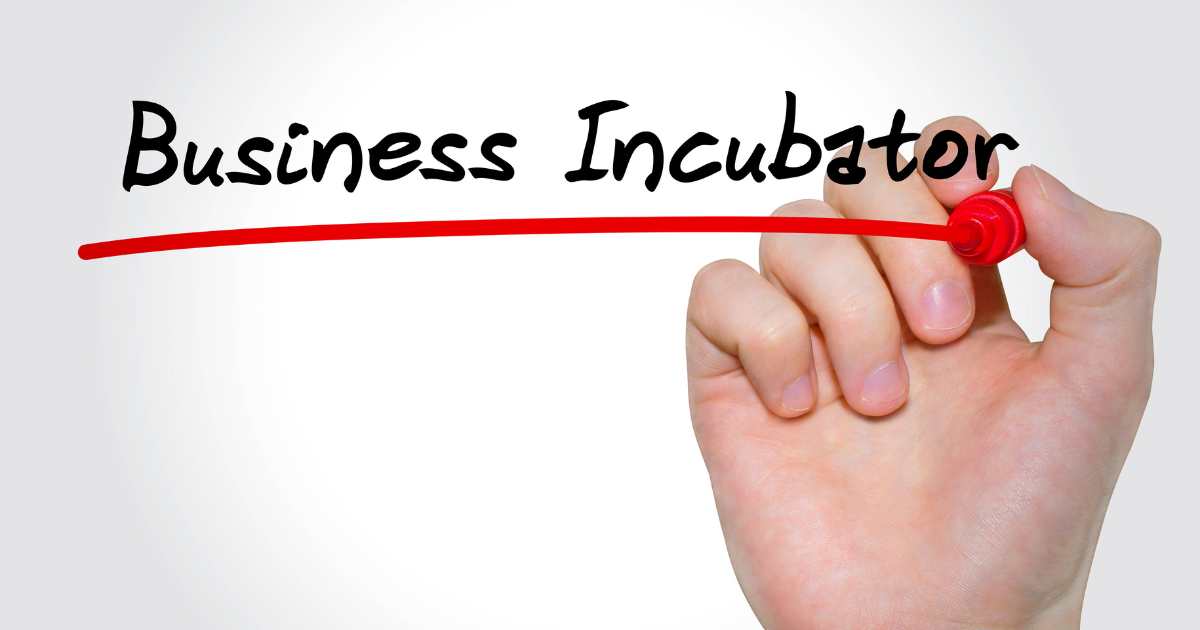This August, SME South Africa’s ‘Breaking the Funding Glass Ceiling’ Series unpacks the funding challenges women entrepreneurs continue to face, explores the innovative ways women entrepreneurs are financing their businesses, and celebrates the funding successes that have helped women build innovative and impactful businesses.

UPDATE: This article was originally published in August 2019, but due to its popularity, it’s been updated on 2 November 2021.
Female entrepreneurs have limited access to finance in comparison to their male counterparts. The unmet yearly financial needs for women-owned businesses worldwide are estimated to be between $260bn and $320bn.
This highlights the need for new lending models and more women-focused lending institutions. However, there are government and private enterprises with programs and funds in place aimed at providing access to funding for women-owned businesses in South Africa.
Here is a list of funds and financial assistance programs that provide funding for women entrepreneurs in South Africa.
1. Enablis Acceleration Fund
The Enablis Acceleration Fund is a partnership between Enablis Financial Corporation SA (Pty) Ltd and Khula Enterprise Finance Limited.
The main objective of the fund is to improve access to SME early-stage funding while reaching out and supporting SMEs that are developing in remote or rural areas to create new sustainable jobs that alleviate poverty and reduce unemployment. This acceleration fund offers equity and debt instruments over loan periods no longer than 60 months.
To qualify for the fund, you must meet the following requirements: be a South African SME that is accredited by the Enablis Entrepreneurial Network; be a black or woman entrepreneur for startups and for the expansion of a business; be involved in all sectors, specifically ICT, transport, tourism, agriculture, and services industry; and need working capital and/or asset finance.
To become a member, visit the Join Enablis section and fill out the application form.
2. Business Partners Women in Business Fund
Aimed at increasing access to finance for female entrepreneurs, the Business Partners Women in Business Fund seeks to afford South African women a fair and equal opportunity to start, expand, or purchase an existing business.
The fund offers finance between R500,000 and R50 million per investment over a five-year financing period. All female-owned businesses (at least 50%) that are commercially viable with female owners active in the business will be considered for financing.
Female entrepreneurs financed through the Women in Business Fund will be supported with additional value-added services such as dedicated industry-specific mentors and a technical assistance (mentorship) grant of up to R25,000 to aid in the development of the business. A further R35,000 interest-free loan for technical assistance, if required, will also be available. They will also have access to information via a dedicated LinkedIn page, Women in Business Africa, and networking opportunities, such as workshops and the annual Women’s Month seminar.
3. National Empowerment Fund (NEF)
The National Empowerment Fund (NEF) is established by the National Empowerment Fund Act, 1998 (Act No. 105 of 1998). The NEF is a driver in promoting and facilitating black economic participation by providing financial and non-financial support to black-empowered businesses and promoting a culture of savings and investment among black people.
The NEF Women Empowerment Fund is aimed at accelerating the provision of funding to businesses owned by black women.
The NEF provides business loans from R250,000 to R75-million across all industry sectors, for startups, expansion, and equity acquisition purposes.
Read more: A Guide to Government Funding for SMEs
4. Isivande Women’s Fund (IWF)
In 2008, the government partnered with Old Mutual’s Masisizane Fund to set up the R100 million Isivande Women’s Fund, which invests directly in women’s enterprises by offering loans at lower interest rates and non-financial support.
The fund is an intervention to reduce poverty for this category of entrepreneurs, who are often constrained by limited access to finance.
Isivande Women’s Fund (IWF) is an exclusive fund that targets black women at the bottom of the economic ladder. It aims to accelerate women’s economic empowerment by providing more affordable, usable, and responsive finance than was previously available.
The fund is managed by the Industrial Development Corporation (IDC) on behalf of the Department of Trade and Industry through Identity Development Fund (IDF) managers.
Read more: Funding For Rural Women In Agriculture
5. Alitheia IDF Managers
To address the lack of access to funding faced by many African women entrepreneurs, Tokunboh Ishmael, Polo Leteka, and Anne-Marie Chidzero joined forces to launch the Alitheia Identity Fund (AIF), a pan-African SME fund that invests in innovative, growth-stage SMEs that are women-led or gender-balanced in the Sub-Saharan Africa region.
The joint venture sees two established women-owned fund management companies come together—Nigerian-based Alitheia Capital Limited, which focuses on SMEs in the finance, energy, and housing sectors and co-founded by Ishmael (CIO); and Identity Development Fund Managers (IDF), a South African-based equity firm co-founded by Leteka (principal partner and COO).
6. Masisizane Fund
SME owners operating in the manufacturing, franchising, and agricultural sectors can reach out to the Masisizane Fund to apply for a mix of grants, loans, and technical support. This fund aims to enable women entrepreneurs to gain market access and create jobs.
The fund, which was established in 2007, is an initiative of the life insurance company Old Mutual. The Masisizane Fund provides funding to enterprises that are black-owned, with a special focus on women, youth, and people with disabilities who have contracts with private and public sector entities.
It also funds black-owned enterprises that are linked to clearly defined Enterprise and Supplier Development Strategies of various corporate and government entities.
7. Cartier Women’s Initiative
Cartier Women’s Initiative is an annual international entrepreneurship program that aims to drive change by empowering women impact entrepreneurs.
Twenty-one women entrepreneurs, three finalists per region (Latin America & the Caribbean, North America, Europe, Sub-Saharan Africa, Middle East & North Africa, East Asia, South Asia & Oceania) are awarded every year. A USD 100,000 grant is awarded to each of the 7 laureates (top businesses from each region); USD 30,000 is awarded to the 14 finalists (2nd and 3rd runner-up businesses from each region).
8. African Women’s Development Fund
The African Women’s Development Fund (AWDF) is a grant-making foundation that supports local, national, and regional women’s organizations working towards the empowerment of African women and the promotion and realization of their rights. According to the website, organizations can apply for grants ranging from USD$8000 to USD 100,000.
9. Khula Lula
Khula Lula is a South African venture capital fund, creating access to micro-financing and scale for African tech startups.
Earlier this year, they announced a R200,000 VC funding opportunity in exchange for equity in a pre-seed or early-stage e-commerce store that is woman of colour owned. They focus on pre-seed and early-stage startups.
10. Africa Trust Group
This is a South African-based early-stage gender-lens investing group committed to investing in Africa’s women entrepreneurs, encompassing enterprise development, access to markets, and trade facilitation.
Africa Trust Group are the fund managers for:
- Enygma Ventures Fund – They invest up to R10-million in women-led businesses that have an established track record, a proven revenue model, and demonstrated growth in SADC.
- Shift Fund – Established in response to COVID-19, they are looking to fund entrepreneurs in Southern Africa with innovative solutions to address Africa’s challenges. They offer equity seed funding for existing businesses with a validated concept.
- Empress Fund – Specializes in innovative financing vehicles from USD 1,000 to USD 50,000 for women-owned and women-enabling businesses in SADC.
- See also: Crowdfunding in South Africa
11. SHEquity
SHEquity funds female-led innovative, impactful, and sustainable startups in Africa with significant growth potential. Their focus is on renewable energy, water, digitalization/fintech, hospitality and service industry, agriculture, and healthcare.
12. I’m In Accelerator
Black South African women who have founded technology startups can apply to be part of this 10-month long acceleration program. The cohort provides R1.5-million in pre-seed capital, mentorship, access to markets and follow-on investment, technology improvement support, and commercialization enablement.
The qualifying criteria include a minimum viable product and each startup being 51% Black- and women-owned. Each team must have at least two members who are fully invested in the business and they must have adequate skills that contribute towards the running of the business.
You can join the email list to find out when the next cohort intake will take place. More info here.
13. WDB Growth Fund
WBD is a Section 12J Impact Investment Fund that provides growth capital funding investment to Black-owned businesses. They focus on youth and women entrepreneurs. The fund takes a minority equity stake within the businesses that it invests in.
To qualify, businesses must be trading for at least 12 months, as well as generate a minimum of R2-million. In addition to funding, WDB also provides access to markets, access to specialist mentors, and high-impact post-investment support. More info here.
Source credit: Some of the funds in this article are from the document ‘African Women Funding/Capital’ authored by Vuyolwethu Dubese. The full document is available HERE.
Vuyolwethu Dubese is a professional in impact and inclusive development and innovation strategy. Over the past five years, she’s served as a Startup Partnerships Lead for Africa for global intelligence firm, Thomson Reuters and as an Impact Acceleration Associate at investment and advisory firm, Impact Amplifier.





